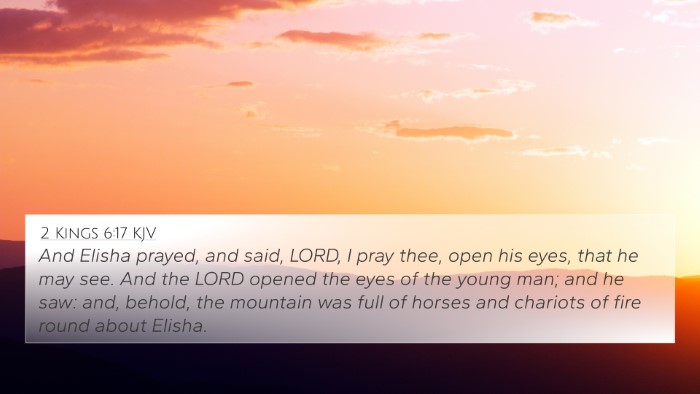Understanding Matthew 26:53
Matthew 26:53 states: "Thinkest thou that I cannot now pray to my Father, and he shall
presently give me more than twelve legions of angels?"
This verse highlights a pivotal moment during Jesus' arrest, where He indicates His divine authority and the
power available to Him through His Father. The implications of this statement reveal much about Jesus'
identity and the purpose of His mission on Earth.
Contextual Analysis
The context of this verse is crucial for understanding its significance. Jesus is in the Garden of Gethsemane,
facing betrayal and impending crucifixion. The disciples, alarmed at the situation, attempt to defend Him with
violence. Peter even draws a sword to fight against those who have come to arrest Jesus.
Jesus' response to Peter encapsulates His message throughout the Gospels regarding love, surrender, and
divine sovereignty. He conveys that, although He could call upon legions of angels for protection, He has
chosen to fulfill the Father’s will instead.
Commentary Insights
-
Matthew Henry:
Matthew Henry explains that Jesus' challenge to Peter serves to remind him of the futility of human
intervention when divine purpose is at hand. He emphasizes the depth of Christ's composure and control
in the face of imminent suffering, indicating His understanding of the necessary path for humanity's
salvation.
-
Albert Barnes:
Barnes reflects on the term "legions," highlighting that Jesus could call upon an immense force of angels.
This reveals not only His power but also His intent to embrace suffering as part of His mission. The
connection to Old Testament ideas of divine intervention shows how Jesus stands as both the sacrificial
Lamb and the Lion of Judah.
-
Adam Clarke:
Clarke points to the historical understanding of a Roman legion to stress the enormity of angelic hosts
at Jesus' disposal. He interprets this as a display of Jesus' commitment to His role as the Savior, fully
aware of the significance of His impending sacrifice.
Thematic Connections
Matthew 26:53 can be linked to several themes throughout the Bible, enriching its interpretation through
comparative analysis:
-
Divine Authority:
- John 10:18 - "No one takes it from me, but I lay it down of my own accord."
- Matthew 28:18 - "All authority in heaven and on earth has been given to me."
-
Purposeful Suffering:
- Isaiah 53:5 - "But he was pierced for our transgressions, he was crushed for our iniquities."
- 1 Peter 2:21 - "For to this you were called, because Christ also suffered for you."
-
Protection and Defense:
- Psalms 34:7 - "The angel of the Lord encamps around those who fear him."
- Hebrews 1:14 - "Are they not all ministering spirits sent out to serve for the sake of those who are to inherit salvation?"
Cross-References for Further Study
In studying Matthew 26:53 further, consider these related verses to deepen understanding and explore thematic
connections:
- Matthew 4:11 - After His temptation, angels minister to Jesus.
- Luke 22:43 - An angel strengthens Jesus in Gethsemane.
- John 18:36 - Jesus clarifies that His kingdom is not of this world.
- Romans 8:31 - "If God is for us, who can be against us?" which echoes the power at Jesus’ command.
- Revelation 19:14 - Angels followed Christ in His victorious return, showing His authority.
- 2 Corinthians 12:9 - "My grace is sufficient for you, for my power is made perfect in weakness."
- Philippians 2:10 - "At the name of Jesus, every knee should bow."
Conclusion
Matthew 26:53 serves as a profound reminder of Jesus' divine power and His choice to embrace suffering for
the sake of humanity. Through various commentaries, we see the richness of this passage, and when cross-referenced
with other Scriptures, it unveils deeper theological truths and connections that are essential in understanding
the heart of the Gospel.
Tools for Further Cross-Referencing
For those interested in a deeper study of Scripture, various tools can facilitate cross-referencing and
thematic connections:
- Bible Concordance: A valuable resource for locating passages based on keywords.
- Cross-reference Bible Study: Engaging in studies focused on connections between verses.
- Bible Cross-reference Guide: A systematic approach to understanding links between texts.










